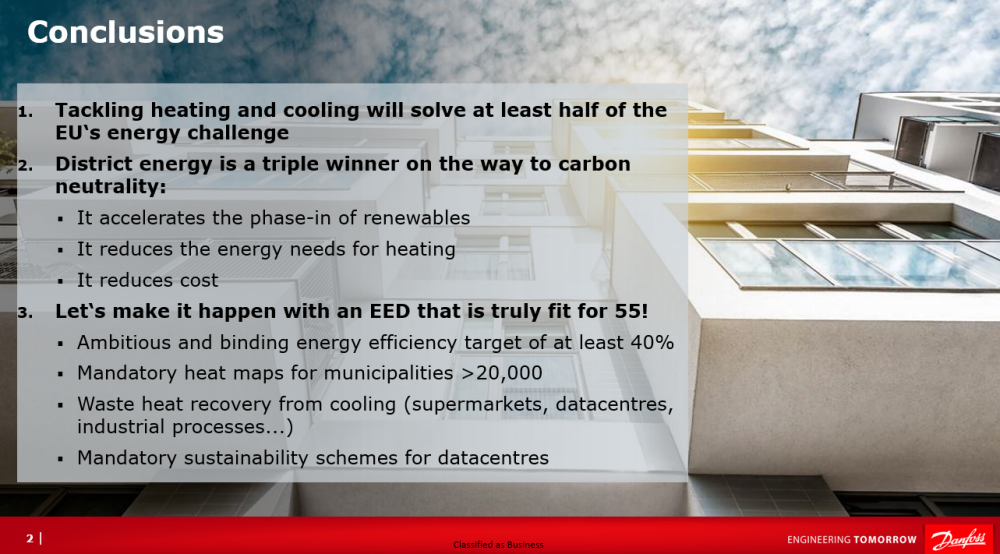Tackling heating and cooling means solving half of the EU’s energy challenge
Heating and cooling represent half of the total final energy consumption in Europe, and most of it is still highly fossil-fuel dependent. District Energy is one important piece of the puzzle to address this challenge.
This was the conclusion of an online panel debate on February 10th, hosted by MEP Grzegorz Tobiszowski and featuring, among others, MEP Morten Helveg Petersen and MEP Pernille Weiss.
Among the panelists was also Danfoss, a leading technology partner in energy efficiency, and pioneer in the field of district energy technologies.
“The magic word in this context is sector coupling. District energy is a triple winner: it supports the move towards renewable energies, it reduces the energy needs for heating and cooling and thus brings down the cost”, said Andrea Voigt, Head of Public Affairs at Danfoss Climate Solutions.
According to the International Energy Agency (IEA), the share of renewable energies will have to be doubled to roughly 60% of the power generation and 12% of the total final energy consumption by 2030.
Such major increase is only achievable in a cost-effective way with “active energy efficiency”. This means that energy flows need to be managed and controlled.
By adapting energy use to actual needs and catering for fluctuating renewable energies, the need for adding costly infrastructure can be significantly reduced.
District energy provides the much-needed flexibility and thermal storage that is required for the transition towards renewable energies.
It is also fully in line with the energy efficiency first principle, as it can actively make use of all energy sources, including those that would otherwise go to waste.
“We need an ambitious review of the Energy Efficiency Directive to make this happen”, continues Voigt. “Built on a strong, binding energy efficiency target of at least 40% combined with binding national contributions, requiring municipalities with more than 20,000 inhabitants to develop heat maps and systematically include waste heat recovery from cooling such as from supermarkets and datacenters.”
The technologies to make this happen, are readily available. Large scale heat pumps to move from high temperature to low temperature district energy, digital tools such as smart sensors, monitoring software, building automation and control systems and dedicated optimization software such as the Danfoss Leanheat suite represent important building blocks.
Now is the time to work together across sectors to accelerate the rollout of these solutions and make a real, measurable impact on energy efficiency and emissions reduction.

